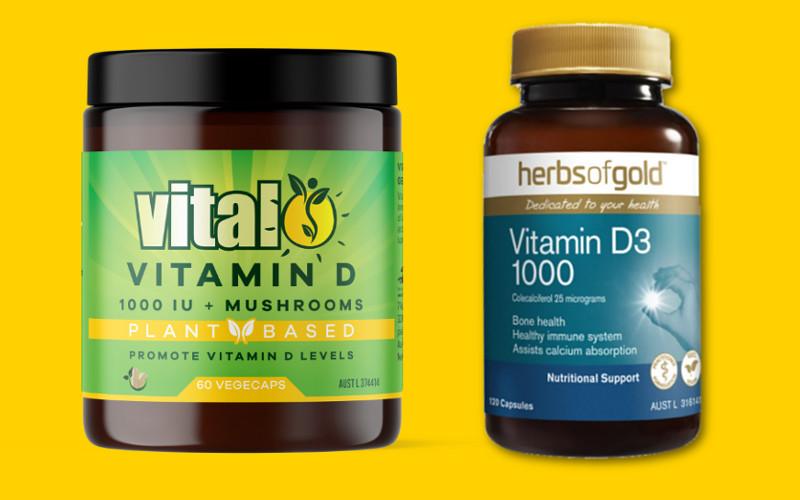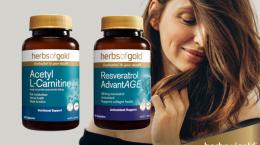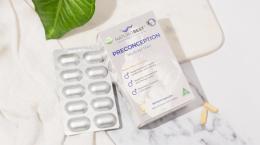What is Vitamin D? What are the best sources of Vitamin D?

Vitamin D is one of the 4 major fat-soluble vitamins necessary for human growth and development. And whilst it’s only required in tiny amounts, it’s reaped with numerous benefits, meaning a small amount goes a long way.
Best sources of Vitamin D?
- Sun exposure in minimal amounts
- Foods like fatty fish, beef liver and egg yolks
- Supplemental forms
Vitamin D is most renowned for calcium and phosphate absorption in the blood, helping to protect, grow and strengthen your bones.
When we expose our skin to sunlight, the cholesterol present in our skin cells helps to produce its own natural form of vitamin D. Not many people realise however, that this sun exposure should only derive from the early morning hours, between 7-9 am, when risks of UV damage are minimal. Any time after that may increase sun damage, contradicting the benefits of absorption.
It’s also important to note that levels will shift depending on seasonal changes. For example, wintertime may equate to less time spent outdoors, increasing chances of deficiency. We must also consider environmental and social factors, such as our working conditions, our genetics in terms of skin pigmentation, sun protective behaviours and health conditions impairing fat malabsorption.
All these factors may impact the way vitamin D is internally manufactured. It may decrease absorption rates, impact immunity, whilst also increasing susceptibility to infections [1], poor mood [2], tooth and bone health [3].
Are you Vitamin D deficient?
Symptoms and signs of deficiency may include poor bone density, muscle cramps, mood disorders and or gastrointestinal issues which inhibit fat absorption. Not everyone will need to supplement with vitamin D, but if you’ve had testing which indicates deficiency, supplemental forms may be of value.
Also, since this vitamin is fat soluble, the body can store it for long periods of time, meaning you won’t need to take it longer term for it to be effective. Please follow the advice provided to you by your healthcare practitioner.
When it comes to supplementation, D3 is available in liposomal forms, sprays and capsules. Supplemental forms usually are available in 1000 IU which is equivalent to 1 dose.
Liposomal forms have the highest and most efficient rate of absorption. This is because liquids and sprays take less time to break down. Liposomal forms in particular are also good at bypassing or reducing gut irritation, as it goes directly into the bloodstream via the soft tissue lining of the oral cavity.
In particular, liposomal forms are good for those with sensitive systems.Capsules on the other hand, also tend to break down rather quickly and efficiently, especially in comparison to powdered tablets. They are quite durable when it comes to storage, yet they do pose shorter life spans and may have more fillers. Ultimately, it all comes down to personal choice and preference.
Vitamin D paired with K2
When purchasing your supplement, you may notice vitamin D paired with K2. K2 is imperative when it comes to D3 absorption; it is the friend that helps your body transfer calcium to your bones. On the other hand, always make sure you are taking your vitamin D in conjunction with dietary calcium because vitamin D is what inherently helps with calcium absorption. You may also want to consider paring this fat-soluble vitamin with other fatty foods because this also increases absorption.
Signs of over supplementation can cause too much calcium to build up in the blood, kidney dysfunction and bone pain. This is why it’s vital to check for proof of deficiency before adding supplemental vitamin D into your daily regime.
Finally, always consult your health-care practitioner when adding new supplements into your diet, especially when taken in conjunction with other medications and or other herbal formulas.
The information presented in this article is intended to be general in nature. Always seek medical advice from your qualified practitioner before using any supplements or following any information presented.
References
[1] Aranow C. (2011). Vitamin D and the immune system. Journal of investigative medicine: the official publication of the American Federation for Clinical Research, 59(6), 881–886. https://doi.org/10.2310/JIM.0b013e31821b8755
[2] Bicikova, M., Duskova, M., Vituku, J., Kalrachora, B., Ripova, D., Mohr, P., Starka, L. (2015). Vitamin D IN Anxiety and Affective Disorders. Physiological Research 64(2), 101-103. http://doi.org/10.33549/physiolres.933082
[3] Botelho, J., Machado, V., Proença, L., Delgado, A. S., & Mendes, J. J. (2020). Vitamin D Deficiency and Oral
Health: A Comprehensive Review. Nutrients, 12(5), 1471. https://doi.org/10.3390/nu12051471







